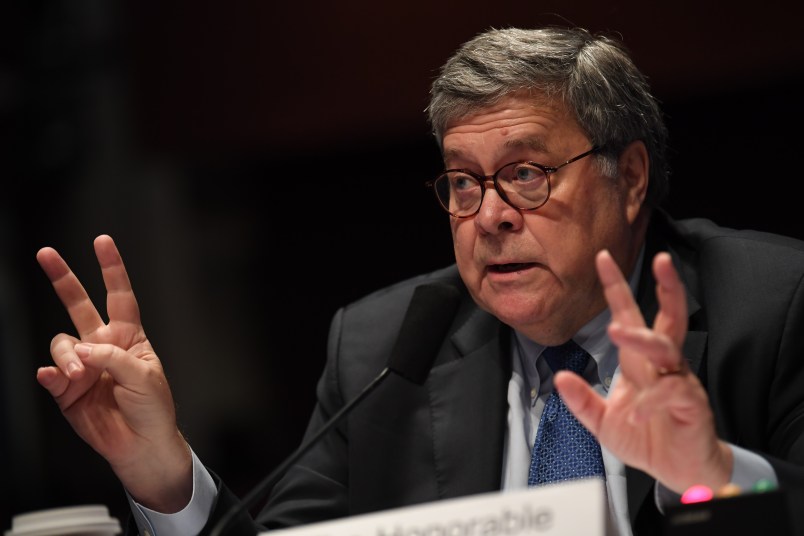The FBI has no evidence supporting a sensationalist theory pushed by President Trump and Attorney General Bill Barr that foreign powers could hijack mail-in elections by mass counterfeiting absentee ballots, according to reports of a press briefing held by U.S. intelligence officials Wednesday.
An FBI official told reporters on the briefing that the agency had “no information about any nation state” engaging in such a plot, according to NPR’s report on the briefing.
The comment came as the officials on the briefing more broadly described mail-in voting as safe from foreign intervention, according to the New York Times report.
However, the officials declined to address whether foreign actors, including Russia, were exploiting Trump’s baseless claims to help to spread disinformation about the election, according to CNN.
In the 2016 election, Russia’s election meddling on social media included messaging that amplified false claims about fraud, while using other tactics to suppress votes.
Both Justice Department and congressional investigators who have probed the 2016 meddling effort have noted that Russia social media disinformation campaign has continued.
Barr first floated the theory that vote-by-mail could be vulnerable to foreign interference in a New York Times interview, after Trump had gone all in on attacking the expansion of mail-in voting that was happening due to the pandemic.
Trump has since echoed Barr’s false claim that vote-by-mail is vulnerable to foreign efforts to flood election officials with fake ballots.
Scores of election officials and other experts have pointed to all the flaws in Barr’s theory, including the U.S.’s localized approach to elections and the various security checks that are in place for absentee voting, that make the scheme Barr described impossible to implement.
Barr has refused to back down from it, however. At a July House hearing where lawmakers pressed him on theory, he claimed it was “common sense” that foreign actors could try such a maneuver, even while acknowledging that he had no evidence to back up the claims.







Bullshit political stunt ≠ theory
Bet you never saw that coming. I believe it’s a first, isn’t it?
I guess someone should show Barr how a barcode works? Maybe by placing a laser scanner in his eye.
A ballot gets put in an envelope with voters name and the name is verified and checked off on a voters list - each voter can only get one check mark.
Barr used the term “common sense”? Did he call upon his vast reservoir of uncommon stupidity to mis-apply it in this context?